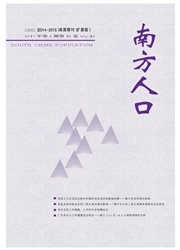

 中文摘要:
中文摘要:
本文使用“中国老年人健康长寿影响因素调查”(CLHLS)数据,测度了中国老人健康不平等程度,重点计算了收入、婚姻状况、居住安排等因素对健康不平等的贡献。回归基础上的集中系数及其分解结果显示:我国存在亲富人的健康不平等,高收入人群的健康状况更好;城镇地区,健康不平等主要的贡献因素为收入、婚姻状况、医疗保险、经常锻炼,居住安排对健康不平等的贡献为负。农村地区,收入因素对于健康不平等的贡献最大,这就意味着消除农村健康不平等的关键是要降低收入不平等。在城镇和农村地区医疗保险的不平等程度更甚,进一步强化了健康不平等。因此如果政策想要降低健康不平等,首先要降低穷人获得医疗保险的经济门槛,增加医疗保健服务的可及性。
 英文摘要:
英文摘要:
Using the data from "Chinese Longitudinal Healthy Longevity Survey" (CLHLS), this paper evaluates the health inequality of the elderly in China focusing on the contribution of income, marital status, living arrangements to health inequality of the elderly. The concentration factors of regression analysis and its decomposition show that there is a health inequality in favor of the rich in China in general and the elderly boasting of high income enjoy better health condition. However the factors affecting the health inequality in the urban and the rural areas are slightly different. The major contributors to health inequality in the rural areas are income, marital status, medical social security, physical exercise, while the living arrangements have negative contribution. Meanwhile the main positive contributor in the rural areas is income. The great inequality of medical social security both in the urban and the rural worsen the health inequality further. This finding means that any policy to alleviate the health inequality should first try to lower the threshold of medical security coverage and increase the accessibility of social medical security service.
 同期刊论文项目
同期刊论文项目
 同项目期刊论文
同项目期刊论文
 期刊信息
期刊信息
